One was elected president of his high school class, but had to move with his family to a new duty station before he could serve.
Another had started planning his Eagle Scout project for his high school, and had to finish it long distance after his family moved.
This year’s Operation Homefront Military Child of the Year recipients are youth who have experienced the good and the bad of military life, including several who have health challenges. But rather than ask, “Why me?” they embrace their challenges and have become more resilient. In some cases, those challenges have spurred them to become mentors to others who may be in the same situation, or dealing with similar health issues.
“Challenge is meant to be overcome,” said 13-year-old Jaxson Jordan, named as the Marine Corps recipient. He’ll be the second child in his family to receive the award – his brother, Michael-Logan, now 20, was a recipient in 2014.
“These seven award recipients are truly exceptional young people who have achieved much at such a young age in terms of academic achievement and service to others, ” said retired Air Force Brig. Gen. John I. Pray Jr., president and CEO of Operation Homefront, in announcing the awards. “They are remarkable representatives of a larger community of extraordinary military kids,”
This year more than 350 military children were nominated for the honor, in the 11th year of the awards program. The recipients have traveled to Washington, D.C. for an awards gala April 18, where they will be recognized by senior leaders of each branch of service. Each will receive $10,000, a laptop computer, and other donated gifts. All the youth plan to use some or all of their $10,000 to help fund college, and some will donate part to their favorite charities.
Six youth are chosen based on the branch of the armed forces in which their parent served or has served – Air Force, Army, Marine Corps, Navy, Coast Guard, and the National Guard. A seventh award -- the Military Child of the Year Award for Innovation -- is presented to a youth who has designed a creative solution to address a local, regional or global challenge. The recipients were selected by an independent panel of volunteer judges in the military support community.
Military Times is the media sponsor for the Operation Homefront Military Child of the Year program.
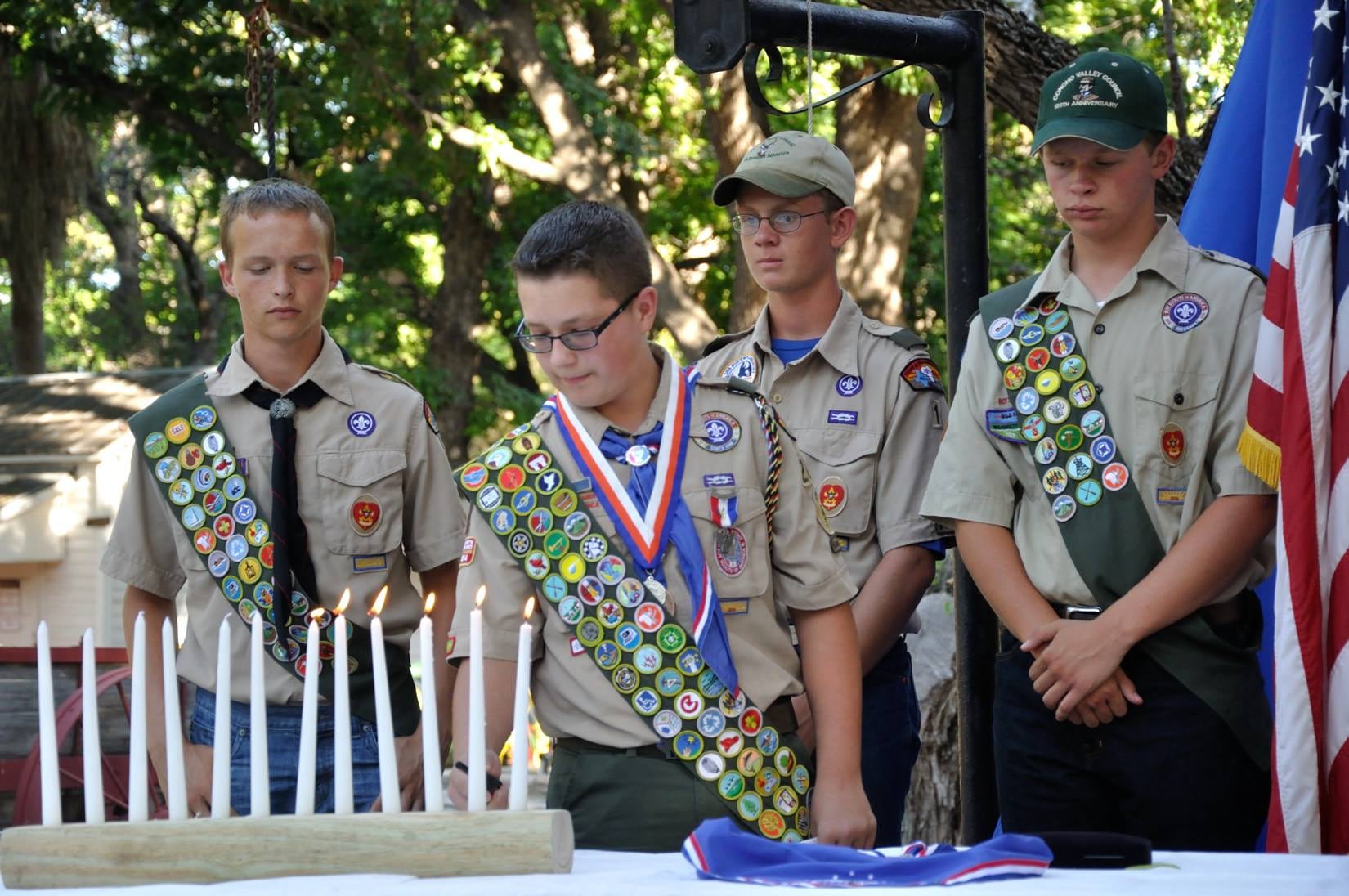
Air Force: Benjamin Rawald
Benjamin Rawald is one of the most – if not the most -- awarded scouts in the history of the Boy Scouts of America.
The Eagle Scout has received all 23 Eagle Scout Palms, all 138 merit badges, the Boy Scouts of America Bronze and Silver STEM Supernova awards, and 42 officially recognized Boy Scout awards. He’s completed every Venturing Advancement and STEM medal, including the Dr. Albert Einstein Supernova Medal.
Benjamin, 17, is the son of retired Air Force Lt. Col. Brett Rawald and Katherine Nielander of Del Rio, Texas. He was named Boys & Girls Club Military Youth of the Year at Laughlin Air Force Base in 2016 and 2017; he’s completed over 5,000 service hours since 2013, and regularly teaches first aid, wilderness survival, conservation and cyber safety at the Laughlin Air Force Base youth center and child care facilities and at scouting events. He collected and shipped nearly 8,000 batteries to military families affected by Hurricane Michael; has honorably retired thousands of American flags; and has conducted many cleanups at several military, American Indian, historic and civic cemeteries.
“Being connected to the military is a good thing,” he said. “You get to meet some of the most adaptive and some of the nicest and greatest families. It’s a positive impact in my life.”
His passion for environmental awareness has led him to initiate and participate in a number of different efforts, and he has received the Boy Scouts of America Hornaday Conservation Award.
Benjamin has spent years removing the armored catfish, an invasive species, from a local creek, improving the ability of local fish to survive. He and a local biology professor researched an unusual gardening method to boost the growth of milkweed in southwest Texas, after Benjamin had read a National Geographic article about the decline in monarch butterflies in the area due to insufficient milkweed. He taught youth in two counties how to make and spread more than 15,000 seed balls that don’t require sowing, over the course of three years. Milkweed is slow growing, but they’re already seeing more plants, he said.
Benjamin is a junior, a dual-enrollment student at Brackett High School and Southwest Texas Junior College, with a 4.0 grade point average. He’d like to become a computer hardware engineer, perhaps for a company or other organization that supports non-oil and conservative fuels, he said.
His advice for military parents: “Engage your child in a national youth group such as the Boys & Girls Club, scouts, 4-H or a music program that the child can rejoin at each duty station and look forward to each time, and continue to develop in that program.”
Advice for military children: “Stay in touch with your friends all you can…. A kid who is connected with friends, even long distance, can more easily adapt than a kid who is isolated.”
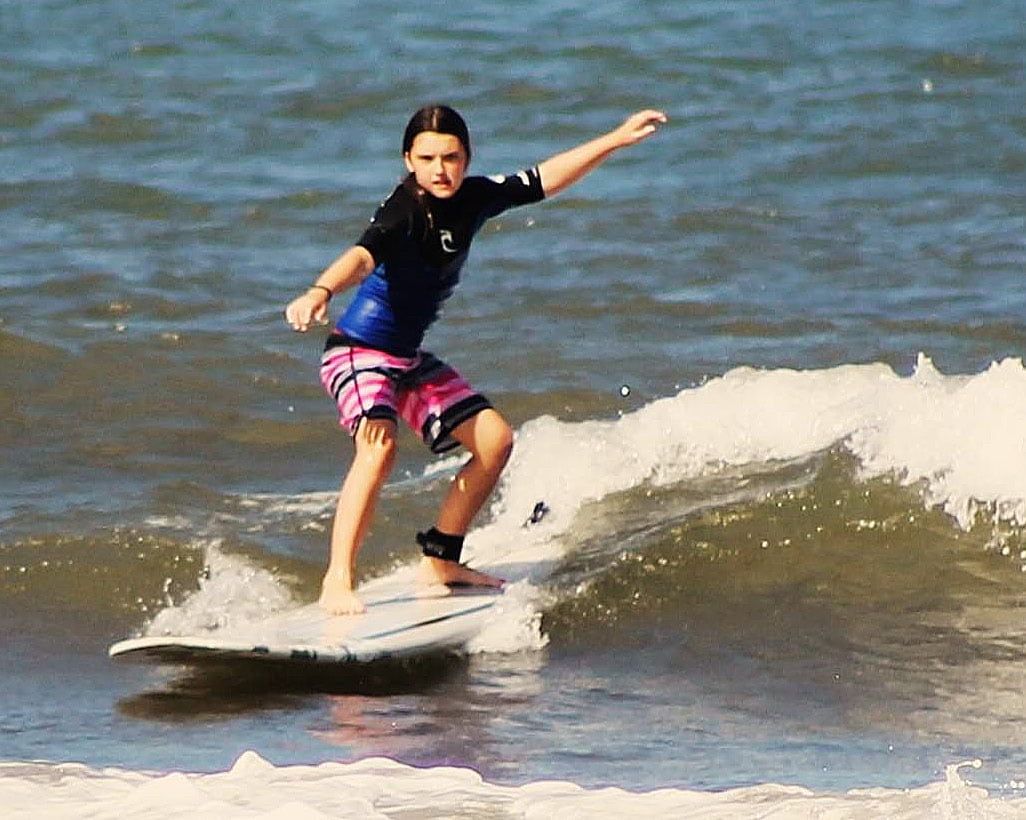
Army: Elisabeth McCallum Polleys
Elisabeth McCallum Polleys says her toughest move was probably the one from Hawaii to Michigan when she was in the eighth grade.
In Hawaii, she had been chosen to be the next cheerleading captain, had played violin in the orchestra, excelled in advanced math and science courses, and had placed in the state archery competition. But she couldn’t continue that in her new school in Michigan, which didn’t have cheerleading or an orchestra or archery. And Elisabeth said the teachers had already selected the students for the advanced math and science classes, so she had to take basic math.
It had an effect. “I would say I was going through a depressed state,” she said. But these experiences have “taught me to be resilient and strong, and proud of who I am,” she said.
Elisabeth, now a 16-year-old junior from Macomb, Michigan, is the daughter of Army Maj. Tara McCallum.
In 2017, she had serious back surgery to correct scoliosis, and missed the second half of her freshman year. The titanium rods in her back cause pain that makes it difficult to do a number of her prior activities, such as playing the violin, cheerleading and archery. She leads a monthly support area support group of Curvy Girls, encouraging and helping young women through the physical and emotional pain of scoliosis.
Elisabeth maintains a 3.9 grade point average, and is a member of the National Honor Society. Her volunteer activities include Job’s Daughters International, Compassion International, and A Rejoyceful Animal Rescue. She’s a member of Thespian Troupe 7494 and participates in the Pankow Performing Arts program. Her biggest dream is to become an actress, she said, but she’s also considering becoming a forensic psychologist because of her interest in her mother’s work as an Army attorney.
The military moving has had a negative impact, as she left her friends, her activities, her communities. But the positive, such as learning about other cultures, has outweighed the negative, she said.
“It’s made me a stronger person,” she said. “It’s made me have to learn more skills. I have to be more outgoing. It helps me make friends easier and be more approachable.”
Her most meaningful accomplishment for her is this Operation Homefront Army Military Child of the Year honor. “I want to inspire other military children that it’s going to be okay,” she said. “We understand what you’re going through. You’re not alone. It’s not really goodbye, it’s just ‘see you later.’
“Try to learn each place’s culture, and learn life lessons that you can apply to yourself and become a better person. That’s a great motto for everyone who’s a military child. I want to show them that as the Military Child of the Year of the Army. I’m really proud to say I am a military child. I hate moving. I hate watching my mom going TDY.
“But it’s what makes us military children strong and amazing. We’re going to be the leaders of the next generation.”
Her advice to military parents: “My mom would always try to find organizations for me to join,” at the new location, she said. “And when I found out I had scoliosis, my mom got me involved in Curvy Girls.” Getting involved “is how military children make a difference in that place, and helps them learn the culture. It helps them feel safe and more at home and helps them make friends more easily.”
After her mom helped connect her with a neighbor who was also a student at her middle school, the neighbor offered to save Elisabeth a seat at lunch. “She was one of my first friends. Now she drives me to school every day,” she said.
When she first moved to any new place, she said, “My biggest fear was not having somewhere to sit at lunch.”
Recently, two brothers from a civilian family moved to the area from Texas, and were new to the school. “I saw they didn’t have anywhere to sit at lunch, and invited them to sit with me. Now they’re both friends of mine,” she said.
“It warmed my heart that I’m passing along what she did for me.”
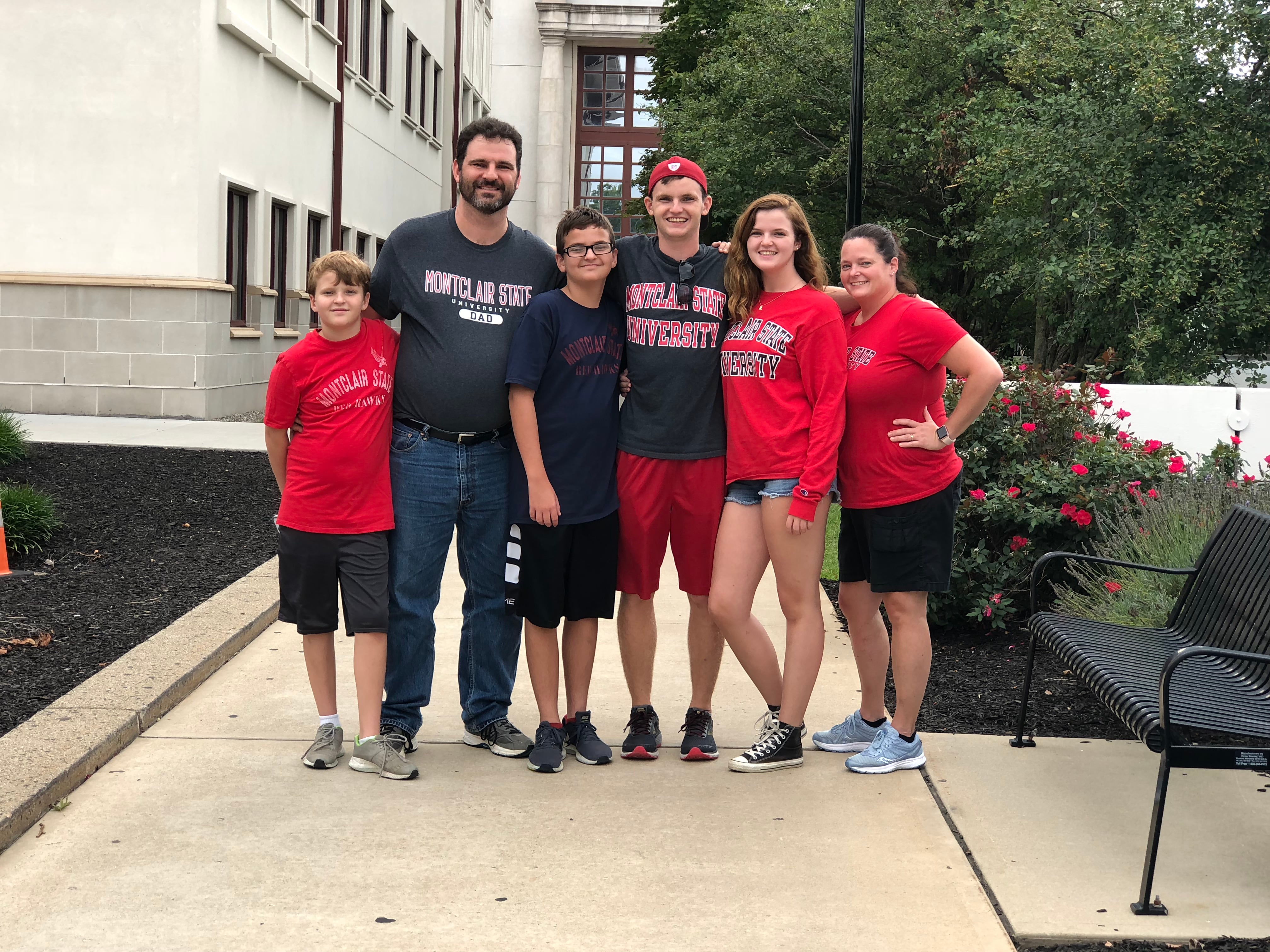
Coast Guard: Kylie McGuire
Kylie McGuire believes her own experience as a patient will make her a more well-rounded surgeon.
“I’ll be able to see not only the surgeon’s perspective, but the patient’s perspective, and understanding what the recovery will look like, and preparing them for what they’re about to go through,” said the 17-year-old senior who is the daughter of Coast Guard Lt. Cmdr. Austin McGuire and Cathi McGuire.
At age 12, Kylie was diagnosed with osteochondroma, an overgrowth of cartilage and bone that caused pain in her knee and thigh. After having several tumors surgically removed, she was confined to a wheelchair for several months, followed by months of physical therapy. After her recovery, she had to give up dance, cheerleading, softball and field hockey because of continuing instability and weakness. She turned to swimming, and is her swim team’s fastest distance swimmer, and was named athlete of the month in January, 2017, after knee surgery.
She’s pushed herself, she said, “to make my family proud and to make something of myself. I like to push through everything. People have been going through so much more, a little pain is not going to stop me from shooting for this goal or using that last stroke to push into the wall.
“There’s a bigger picture, and a little pain isn’t important in the bigger picture.”
She’s president of the National Honor Society in her school, Nottingham Hamilton High School North in Hamilton, New Jersey, where she expanded the society’s free tutoring for high school students into three local middle schools. She has a 4.4 grade point average.
Kylie is captain of the girls’ swim team, secretary of the French club, vice president of the math club, treasurer of the Key Club, captain of the stage crew and a writer and editor for the school newspaper. She’s student representative to the Hamilton Township Board of Education. She’s volunteered for food and clothing drives, in various elementary school events and at various races and runs.
Her most important accomplishment for her, she said, is the work she did in the summer of 2018 as a research assistant with Princeton University’s psychology department, where she spent long hours studying societal racism and sexism. “It gave me the chance to give back by shedding light on the psychology behind racism and sexism… that it’s more than just an idea. It’s a psychological process,” she said. Her work is contributing toward a professor’s research into combating discrimination and violence.
Military life has had a positive impact on her life, she said, by helping her gain more respect for those who serve, and to understand service.
Her advice to military parents: “Boost your children’s confidence. When I was younger, my parents would really boost my confidence. They encouraged me to do my best, and that it’s okay to fail. They taught me that the best thing is to be me. Going into any new school or any new community with that attitude that you’re the best you there is, is the best thing you can have for a kid.”
Her advice to other military children: “Be happy and optimistic. See the best in the situation. Obviously it’s not ideal, but if you make the best of it, it’ll be so much better and you’ll be happier.”
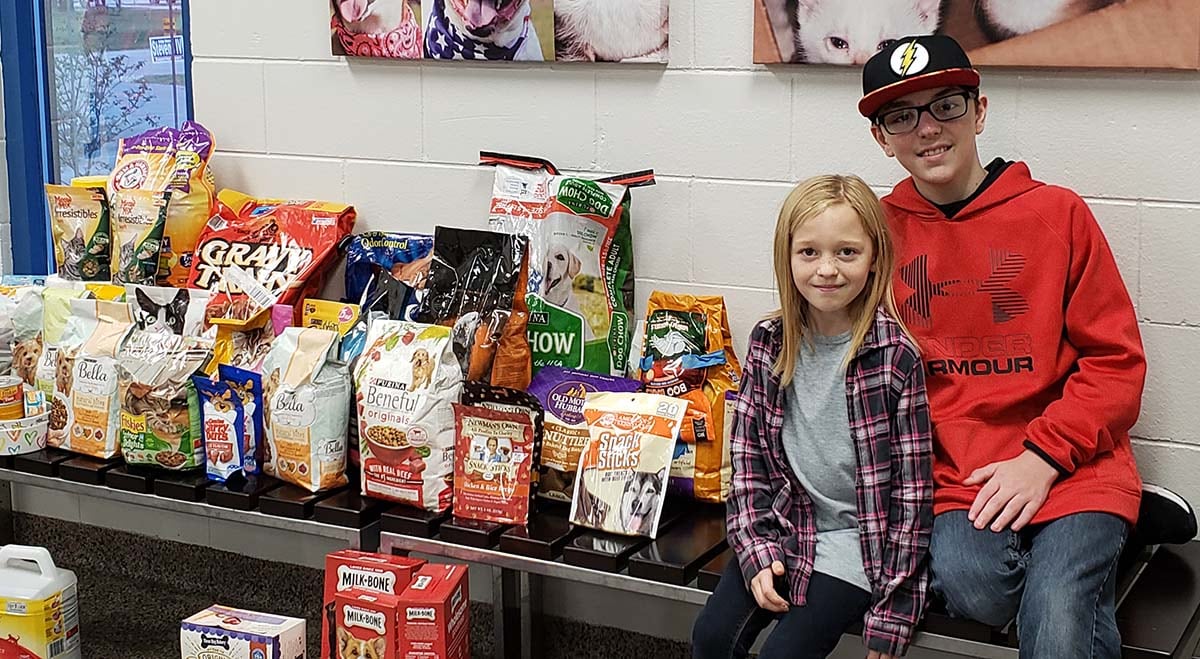
Marine Corps: Jaxson Jordan
When 13-year-old Jaxson Jordan sees a need, he jumps in. In elementary school in Hawaii, he’d bring extra food in his lunch box to give to a friend who didn’t buy or bring lunch.
“One day he told me his family didn’t have much food in the house,” Jaxson said.
So Jaxson talked to his mother, and worked with his school to organize food drives. His effort expanded to local soup kitchens, food banks and the Ronald McDonald House.
“On my birthdays, instead of getting gifts, I would donate to charities and food banks…. It started with my friend,” Jaxson said.
Jaxson began volunteering with the Arthritis Foundation at age 5, and mentors other children with arthritis. He’s received many awards for his volunteer work with that foundation and others, such as the Armed Services YMCA, Blue Star Families and Logan’s Heroes Foundation.
Jaxson, the son of Marine Corps Master Gunnery Sgt. Christopher Jordan and Becca Jordan, said military life has taught him resilience through moving five times in his life, through deployments, leaving friends behind.
“But there are positives, making new friends and having friends all over the country," said Jaxson, an alto saxophone player who also helps train service dogs.. "Always being flexible helps,”
This seventh-grader at Brewster Middle School at Camp Lejeune is the second child in his family to be named a Military Child of the Year. His brother, Michael-Logan was named the Marine Corps recipient in 2014.
His most important accomplishment, he said, “is overcoming health challenges… being flexible, persevering, resilient.” He is dyslexic, visually impaired and lives in chronic pain with mobility issues and organ damage from overlapping autoimmune diseases. He’s back in school now, but was unable to return with his peers while his school was being repaired after hurricanes Florence and Michael hit North Carolina last year, because he is immunosuppressed.
“Challenge is meant to be overcome,” he said. “I’ve done that through giving back to my community. People of all abilities can make a positive impact in their community.”
He plans to go into a field where he can design and develop technology to help people with challenges to take back some of their independence, he said. “Originally I wanted to be a surgeon, but I’m sure people don’t want someone who is visually impaired poking around their insides.”
That sense of humor is an integral part of his success, his mother said. “He attacks life, instead of feeling sorry for himself. He attacks it with humor. He can turn any bad situation into a good situation. I’ve seen this kid go through so much,” said Becca Jordan.
“He’s always the first to help someone,” she said, noting she watched in amazement while he jumped in to help raise hurricane funds for supplies, food and clothing at his sister’s school, where some of the families were left homeless.
He started with $100 of his own money and $100 contributed by his mother, and got an additional $200 worth of supplies donated by the Walmart manager. By the time his whirlwind donation drive was completed three hours later, he had convinced other local business owners to donate, and brought back $1,200 worth of donated supplies to the school.
“He just doesn’t see obstacles. He’s resilient. I think all military children are,” she said.
His advice to military parents: “Always be there for your kids, and when they are faced with challenges, remind them to rely on their own resiliency because challenges are meant to be overcome.”
His advice to military children: “Always be flexible, and resilient. It doesn’t matter if you have health challenges. People of all abilities can make a positive impact in their community.”
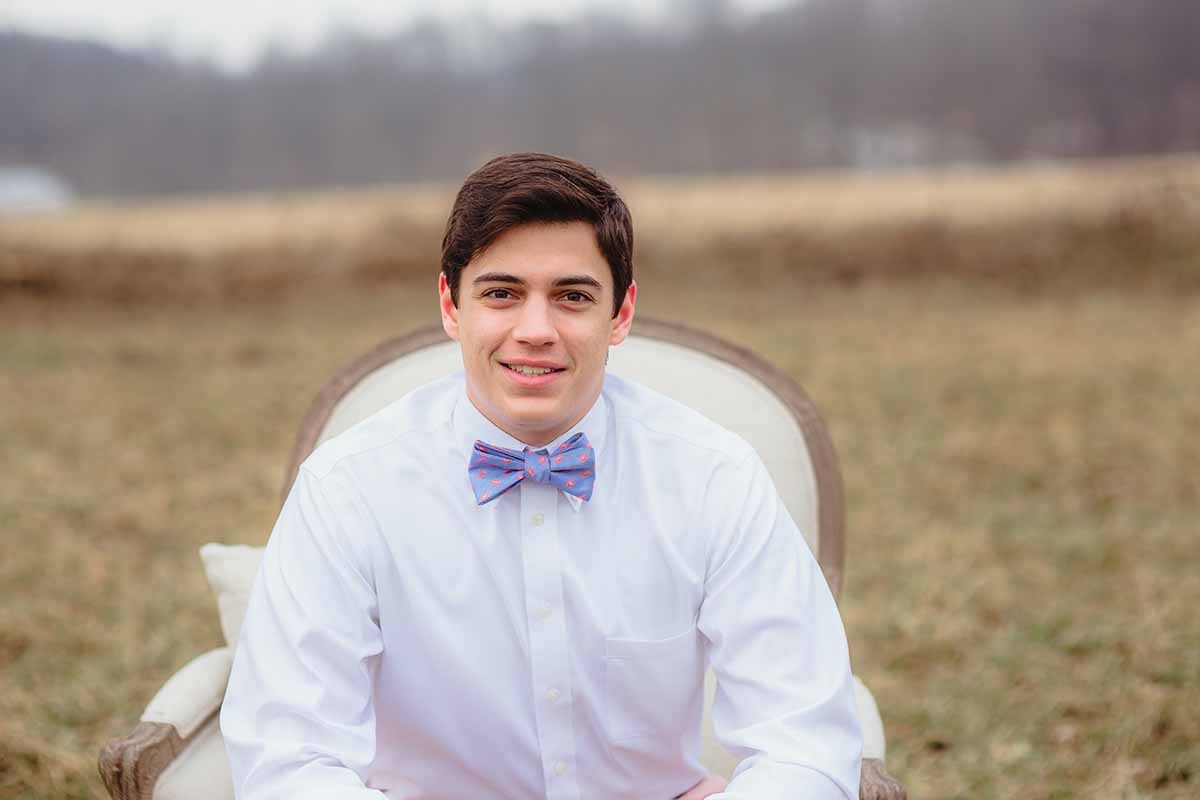
National Guard: Campbell Miller
Campbell Miller had just begun his Eagle Scout project in Maryland when the military moved his mother, Air National Guard Col. Allison Miller and her family to Ohio.
But that didn’t stop him from completing the project to add outdoor fitness stations and mile markers for his Maryland high school. He finished all the planning, approvals and other requirements through emails and phone calls, and then later returned to Maryland to complete it with a team of volunteers. The fitness stations included a stretching station, pullup station and pushup station. Before that, he said, “Any team practicing outside had no way to add to their workout." He’s gotten good feedback from his Boy Scout troop, and from his friends from the cross-country team that the project has added to their workout, and they’ve had fun using it.
That Eagle Scout project reflects a part of the positive impact his military life has had. “It’s taught me how to be resilient, and adaptable in different situations,” he said, such as moving to new areas, or helping his family, including his grandparents, when his mom deployed. He’s learned to be adaptable in making new friends quickly, he said, which has served him well as he has attended three different high schools.
His accomplishments are many and varied– varsity cross country captain, varsity baseball captain, honors diploma, church youth group leader and volunteer, mission trips to Guatemala, Ireland and Uganda, to name a few. But in addition to earning the Eagle Scout honor, the most important accomplishment for him, he said, is his dedication to his academic work. The importance of keeping good grades has been instilled in him since he was young, he said. His grade point average is 4.95, because of Advance Placement and other courses he’s taken.
He’ll attend Auburn University in the fall with the goal of becoming an architect.
He’s learned leadership skills by watching his mother’s example. “I see what a bold leader looks like” he said. But he’s seen his mother serve in many ways besides serving her country. “As I grew up, I watched my mom serve. She served the people she worked with, she’d always serve my school, our neighbors, her friends. She’s always looking for ways to serve.” He credits his mother “for my knack for service, and why I love it so much.”
His advice for military parents: “Talk to your kids. We don’t have to know every detail, but let us know what’s happening, so we know where our parents are, how they’re doing. … When you deploy, or go on a trip, or if you have to move, being honest and talking to us is the best way for parents to support their children and for children to best support their parents and their career.
“Parents should understand that no matter what, their children are proud of them. They support them when they put on the uniform. No matter the situation, they’ll be supportive.”
Advice for military children: Take advantage of the opportunities. “At first, I asked why we had to move from a perfectly good place, but now I see the opportunities, see the friends I’ve made, the people I’ve been blessed by, because of those opportunities as a military child.”
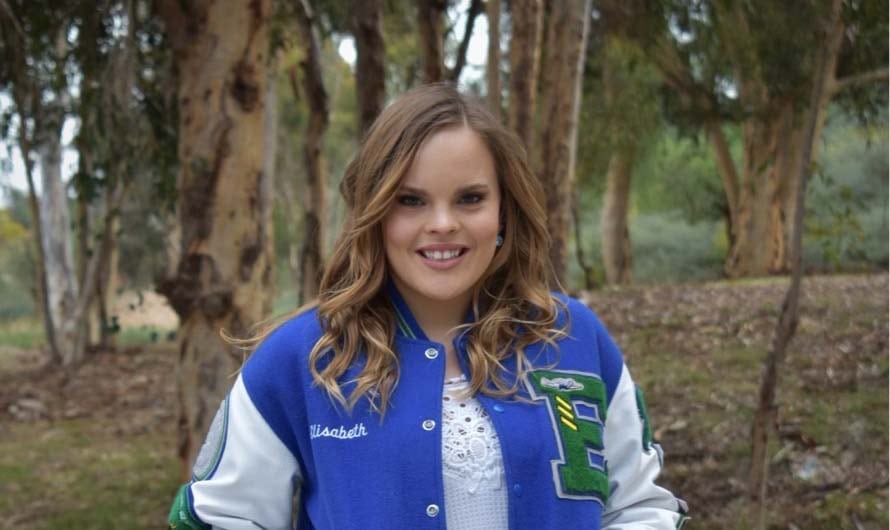
Navy: Elisabeth Lundgren
Every day at her swim practices, Elisabeth Lundgren would stare at the number for the record for the 200-meter backstroke event at the University of California, Santa Cruz, where she is an 18-year-old freshman.
Her name is now on that board, because she recently broke that 19-year record. “That was awesome and emotional for me and my coach,” she said, as well as for her parents – Connie Lundgren and Master Chief Kevin Lundgren, command master chief of Explosive Ordnance Disposal Group One.
Elisabeth pursued sports in the water because she couldn’t risk the injuries to her body from other athletics. At age 13, she was diagnosed with Elher’s Danlos Syndrome, a condition of the connective tissue and joints that causes the joints to move beyond the normal range, causing repeated injuries and cycles of pain, therapy and recovery.
She started her freshman year in high school on the swim team using a cane, and was a varsity swimmer who earned the Freshman Swimmer of the Year award.
She experiences some pain in her shoulders, knees and back when swimming, she said, “but I’ve found ways to work around it, when it affects my ability to practice,” she said.
That’s her nature – to find ways to succeed.
“I’ve always had a drive to succeed not in spite of my condition, but to succeed because of my condition. I’ve met other kids with Elher’s Danlos and a lot of them are sad, and have a negative outlook on things because the whole body…. at times it feels like at times you’re confined within your own body. I want to be a motivation not only for my team, my family, my little siblings, but overall a motivation for other people similar to me.”
She’s volunteered for organizations such as the USA Swimming Foundation, the American Red Cross, Military Integration and LINK Crew services and the EOD Warrior Foundation. She graduated from high school with a 4.6 grade point average. She was the high school swim and dive team captain.
But the most important accomplishment for her was receiving the Ellen Erickson Memorial Award from South Bay Aquatics for her support for others, and positive attitude in the face of adversity. Ellen was Elisabeth’s friend and teammate who lost her battle with cancer in 2016. “She was a huge motivator for me. … To be even held at any similar level to Ellen, to have anybody think that I showed some characteristics of that person I just admired and looked up to…was very, very emotional,” she said.
As a military child, she said, she’s certainly dealt with challenges, but also believes those challenges brought her unique skills. Of his 29 years on active duty, her father has spent 23 years on sea duty. “Having my dad gone, and having that different family dynamic, not having my dad there for a lot of my recoveries, injuries, missing out on those daddy-daughter dances, birthdays, just regular family life … it brought me skills that I realize I’m using more than ever now.
“I’m a lot more accustomed to overcoming challenges and being outgoing. I just recently went to college. Going there…. being completely removed from your family, having no one to rely on in a completely new area. I’ve done that so many times with various moves that it was very natural for me and it made for a really good transition.”
Advice for military parents: “Have high expectations for your kids. Don’t allow them to make excuses for themselves, or to feel sorry for themselves. Understand that the issues and challenges they’re going to go through being a military child at the end of the day will them a lot more adaptive, outgoing, persevering and determined and motivated than their peers. Always encourage them that it’s a privilege to be a military child, and to have such a different look on the pride that comes with being a military family.”
Advice for military kids: “My life’s motto advice is a day without laughter is a day wasted. Always come at situations and challenges that come up in your life with a positive attitude. The ‘why me?’ attitude never makes anything easier. A smile and positive attitude is completely contagious. If you can be the shining light in someone’s day, or be a shining light in a room …. at the end of the day it’s going to make you a happier and more successful person.”

Innovation Award: Brandon Mammano
Brandon Mammano was elected class president in his high school, but wasn’t able to serve – because his family moved from New Mexico to Hawaii.
But being the flexible, creative, motivated military teen that he is, he asked his principal in Hawaii how he could serve there. The principal created a position for him, as director of clubs at Hanalani Schools’ Upper School. He spends about 20 hours a month helping other club presidents. “I’m very blessed he created this position just for me. Now it will be an ongoing position that, even after I graduate, will hopefully continue for many, many years,” said Brandon, an 18-year-old senior.
He’s the son of Air Force Col. John Mammano and Mimi Mammano, in Mililani, Hawaii. He’s been accepted to seven universities, and is deciding where he’ll go to pursue a degree in engineering, with the goal of developing innovative ways to make life easier for others.
As the winner of the Booz Allen Hamilton Innovation Award, Brandon hopes to work with the company to implement his sponsorship program for military children all over the world. At Clovis High School in New Mexico, he helped create a letter for military children to be included with the sponsorship information for the military member. He included his contact information so that if a child or student had any questions, he could help them ahead of time to make integration easier into their new school.
At Clovis, he also helped start and was the first president of their Student 2 Student program, which is an initiative of the Military Child Education Coalition that involves civilian and military kids helping welcome new students into the school. “I’m super proud of what we were able to accomplish. It shares my message of what I want to spread: be welcoming to everyone around you,” Brandon said.
His life in a military family “really shaped me into the person I am today. I want to help other military children, to let them know they’re not alone in these tough situations, “ he said.
Military life has shown him how to be kind to other people, he said, and he’s learned many things living in different places and meeting different people, and learning different cultures. “It’s really opened my eyes to be loving and accepting to every single person.”
Brandon is swim team captain, with a 4.0 grade point average. He’s volunteered with a local Fisher House, and USO, with the Hickam Air Force Base Morale Council, to name a few; and other highlights include the golf team, student council, and being named Student of the Year.
But his most important accomplishment? “When I’m able to see I can help another military kid or civilian kid. …. Even if it’s just a smile, or when I’m able to see them join a club they truly enjoy and find friends. It’s great to see the impact,” he said.
His advice to military parents: “Be there for them, talk to them, listen. My parents have always been supportive of me, always been there for me no matter what we were going through. They’ve always done their best to make me feel safe and comfortable. I know I’ll never be alone. I can always rely on my parents and my family. And not only can military kids ask for help, but parents can ask for help, too.”
His advice to military children: “Try new things. You get the opportunity to do so many things most people never get the chance to do in their lifetime. You get to experience different cultures, different food, different activities, see new places and meet friends from all over the world. Have an open mind to try new things. Sometimes you may feel alone but you’ll never be alone. You’re always a phone call or a text away from a friend. Don’t be afraid to ask for help.”
